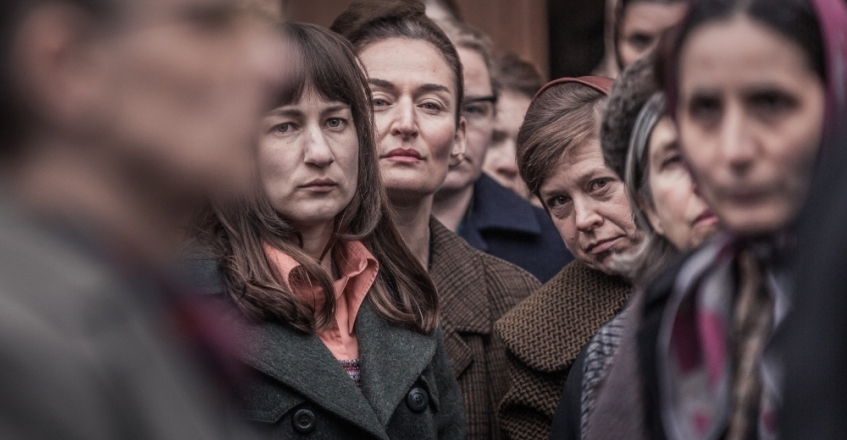News
HUMAN RIGHTS DAY: Women’s rights today: regression, stagnation or progress?
In cooperation with the Government of Switzerland, the Sarajevo Film Festival will host the Human Rights Day for the ninth year in a row.
As a part of the activities marking the Human Rights Day, which will be held on Monday, 14 August, Sarajevo Film Festival will organize a special programme, including a screening of the film THE DIVINE ORDER by director Petra Volpe and a panel at the Multiplex Cinema City.
The topic for this year’s Human Rights Panel is “Women’s rights today: regression, stagnation or progress?”
Although most of the women across the world were given the right to vote by the end of the 1950s (and many in the decades before), it was not until the beginning of the 1970s that women in Switzerland began to enjoy the same right. Prior to that, while in other countries women freely and equally participated in social, economic and political life, even gaining national leadership positions (Prime Ministers Indira Gandhi, Golda Meir, for example), in Switzerland, at the heart of Europe, there were no female politicians, and neither were there any women voters. This was due to the fact that the Swiss system requires a national referendum for constitutional change; therefore, the rights of Swiss women were at the mercy of those who could vote with ballots cast on February 7, 1971 – men. Aware that the previous referendum on the right of women to vote, held in 1959, was rejected by 67 percent of Swiss men, women in Switzerland began to mobilise and organise across cantons, cities and villages to fight for suffrage.
This outstanding, lengthy struggle is portrayed by director Petra Volpe in THE DIVINE ORDER through the story of Nora, a seemingly ordinary housewife from a remote Swiss village who, despite the obstacles and backlash, becomes a fearless leader for suffragettes. Volpe outlines conservative, patriarchal Swiss society on the one hand; on the other, she examines the new, emancipated movement of women across the country, from the major cities to the smallest Alpine villages, as they demanded solidarity, equality and change. Remarkably, this same fight continued across globe until 2015, when Saudi Arabia became the last country (with the exception of the State of Vatican City) to grant women the right to vote.
Although we can agree that times have changed and women are better off today than ever before, they are still far from having the same rights and opportunities as men. Despite the great strides made by international women’s rights movements over the last century and longer, women and girls in many countries around the world are still today married off while they are still children, forced into labour and sexual slavery through human trafficking, or refused access to education and participation in the political sphere. Further, women are still fighting for equal pay, affordable childcare, free basic healthcare and freedom from all manner of violence, among other issues – and the battle is far from over.
To what extent have the rights of women generally improved and advanced in the past decades? What are the key issues facing women’s rights movements today? Are we observing the progress, stagnation or even regression of women’s rights in RECENT years, especially with regard to issues of birth control and the right to abortion? What is the ongoing significance of the Women’s March worldwide protest that was held in January of this year? These are just some of the questions we will tackle and try to answer at this year’s panel debate taking place during Human Rights Day at the 23rd edition of the Sarajevo Film Festival.
The Competition Programme – Documentary Film of the Sarajevo Film Festival showcases films inspired by various aspects of human rights and by marking this special day we aim to further emphasize the importance of film as a significant and powerful media for the promotion of human rights. The films and topics chosen each year for marking the Human Rights Day provide an opportunity for panel participants, the audience and the media to discuss pressing problems currently faced by individuals or communities in the world.
The winner of the Human Rights Award will also be announced at the official awards ceremony of the Sarajevo Film Festival. The prize is awarded to the film in the Competition Programme – Documentary Film that most effectively highlights issues of human rights. The €3,000 prize is provided by the Government of Switzerland.






